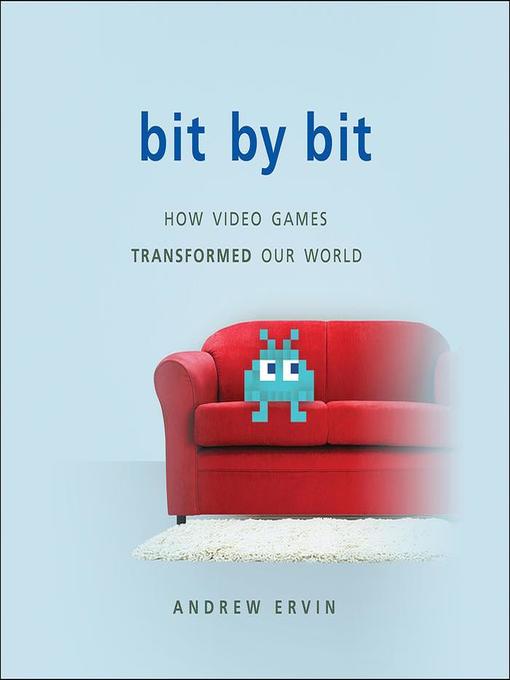
Bit by Bit
How Video Games Transformed Our World
کتاب های مرتبط
- اطلاعات
- نقد و بررسی
- دیدگاه کاربران
نقد و بررسی

March 20, 2017
In a contemplative ode to electronic entertainment, Ervin (Burning Down George Orwell’s House) ventures into the world of video and computer games. Starting with arguably the first video game, 1958’s Tennis for Two, and traveling right up to modern juggernauts such as Minecraft and World of Warcraft, Ervin examines numerous aspects of the industry, including its unlikely origins during the Cold War and the ongoing argument about the artistic value of video games. His affection for the subject is obvious, especially in his detailed descriptions of his research for the book, which involves playing each game in as close to its original state as he can manage: tracking down a vintage Donkey Kong cabinet, borrowing his neighbor’s Xbox to play Halo. Ervin’s philosophical ruminations occasionally verge on the abstract, and the book is by no means an exhaustive history; it’s a personal journey that speaks volumes on how video games have grown, evolved, and multiplied to fill myriad roles over the years. Agent: Markus Hoffmann, Regal Hoffmann & Associates.

Starred review from April 15, 2017
Ervin (Burning Down George Orwell's House) traces the lineage of video games with engaging reportage that includes interviews, personal experience, and critical analysis. This work covers similar ground to Simon Parkin's Death by Video Game yet offers a unique range of examples and a fresh voice. From the charming position of a newly minted old fuddy duddy, Ervin describes his encounters with the most significant video game creators and their games, explaining their contribution to the genre. He also tells personal stories with contagious enthusiasm: restoring a Donkey Kong arcade cabinet, getting to play Adventure again on the original Atari 2600, on being slaughtered by Minecraft zombies (hidden from the prying eyes of his nephews) to name just a few. Not every pixelated encounter is sweet, however. His distaste for first-person shooters is strong, which makes sense as his analysis takes shape. He believes artful games aim to build empathy in their players and "offer a new means of thinking about more timeless existential problems." VERDICT A thoughtful, personal, and enlightening look at the past, present, and future of video games.--Paul Stenis, Pepperdine Univ. Lib., Malibu, CA
Copyright 2017 Library Journal, LLC Used with permission.

April 15, 2017
It's unusual for a history of video games to feature multiple quotes from Rilke, references to philosophy and Zen Buddhism, and comparisons to great works of art. But that's exactly what Ervin serves up to support his compelling argument: video games can be art. They can achieve the same heights of storytelling and social commentary, inspire genuine self-reflection, and promote personal and social progress, like any other creative medium. He examines what he considers the most seminal games, designers, and developments in the short history of video games. This isn't a comprehensive history and doesn't pretend to be. It's a personal listErvin focuses on what he considers most important and his own experiences as a lifelong gamer. He's clear about his personal preferences but does his best to understand the appeal of important games he doesn't like. Ultimately, this is less about how video games have transformed our world and more about how they can. Ervin's hopefulness sometimes feels naive, but that doesn't render his faith in games any less compelling.(Reprinted with permission of Booklist, copyright 2017, American Library Association.)

























دیدگاه کاربران